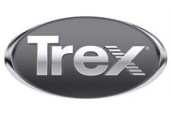Southeast
Keys Accounts: Dale Baker and Marathon Lumber carve out a niche in Florida.
Where in the world does a contractor’s power lunch consist of a cold beer and an ice cream cone? At Marathon Lumber and Building Supply in the Florida Keys, of course.
You’ll find Marathon, Fla., roughly midway down the storied Keys between Key Largo and Key West. Marathon Lumber sits on a side street just off of U.S. 1, “the” highway in these parts, though it is only a two-lane road.
Dale Baker and his wife Pat have run Marathon Lumber since 1977, shifting its focus with the times, enduring hurricanes, and carving out niche offerings to serve the store’s 70% pro customer base. Today, Dale’s daughter Trisha has a large role at the company as its vice president and manager. Among the scuba and boat shops, thin beaches, and the coral reef, there is a lumber dealer down here–and it sells beer and ice cream.
“Think of living down here like eating an elephant, [you take it] one bite at a time,” Baker says. He casts off the notion that Marathon might be any different than, say, Boise, Idaho. “Every time you read about the Florida Keys, they include the word ‘unique’ because of our geographic location, our distribution lines, our lack of workforce,” Baker says. “I don’t think we are any different than anywhere else. Business is business.”
In saying that, Baker is overlooking a few differences. Unlike the expansive communities that most dealers serve, Marathon is more water than land–a string of just six out of 1,700 islands that make up the Keys. It’s less than a quarter-mile wide at most points. Cuba is merely 112 miles away. Baker, 59, who was born in “a place called Massachusetts,” moved here in 1952 with his family and hasn’t been back to his birthplace since.
There’s a steady need for lumber here, given how the storms and salt air are so tough on buildings. A norm for construction in this area is to demolish a structure and rebuild from scratch.
In the case of Hurricane Wilma last year, Marathon found itself under a surge of 8 feet of water that crossed the island hours after Wilma’s passing. In the early moments, Baker headed to a neighbor’s house to help move a motorcycle. By the time he made his way back to his house moments later, he was chest deep in water. While most of the Baker home was unaffected because it sits on stilts, a ground-level storage facility was wiped out. Pat’s car was destroyed, and Dale’s boat drifted down the block. Luckily, he had chained up a beer cooler kept outside of the house.
Marathon Lumber’s yard area still shows the high-water mark, and if this reporter had dined with Baker a year earlier at a local seaside restaurant, we would have found our table underwater. According to Carlos Rodriguez, one of Marathon’s eight full-time employees, it was a scary moment. “I had a bottle of rum in one hand and a bottle of vodka in the other,” Rodriguez says. “If I was going to die, I was going to die happy.”
High taxes and expensive property are forcing some longtime residents out of town. Two decades ago, a mobile home and canal lot could be bought for under $10,000. The same pieces are being sold today for $750,000 to $1 million. One result has been that Marathon’s population, which had grown steadily over the decades, has dropped nearly 5% to roughly 9,800 since 2000 Census Bureau estimates.
“People are coming down here and buying a house for a million and tearing it down,” Baker says. “The people who moved down here and built the community are leaving just about every day.”
High taxes are inhibiting new construction, along with a collection of moratoriums made over the past 20 years to slow growth. Permits are difficult to obtain in Marathon, Baker says, and not knowing what the local government might do next has presented a challenge to Baker and his builder customers.
There is no question that Marathon has carved out a nice slice of business through a number of niche offerings. The company carries fiberglass and lumber strictly used for boatbuilding. During my visit, I found out that a 40-foot boat was being built from scratch using materials entirely supplied from Marathon with the exception of the electronics.
Like many LBM dealers, Baker must contend with a branch of The Home Depot. But he can live with that, in part because its arrival has made it easier for Marathon Lumber to receive deliveries from regional distributors.
Other niches include plaster products used in local construction, dock ladders, and Honduran pine that fishermen use to make lobster traps.
Materials are still a driving force, though, making a major contribution to Marathon’s annual sales of $5 million. A ritzy condo development–Tranquility Bay, which is massive by Keys standards and sits on a private road behind Marathon Lumber–was built primarily using materials bought from the dealer. Marathon typically runs three delivery trucks out of the 12,500 square-foot facility.
Baker has been approached by other kinds of pro dealers for niche business ventures, particularly when “recreational pharmaceuticals” were trafficked through the area. Some asked if they could hide marijuana with bundles of sticks Baker ordered. As a volunteer for the sheriff’s department, Baker says he has seen his share of drug arrests.
“We would watch the boats come in, bust them, and realized after a while that we were doing too much work. Let them unload the boat and do the work before we bust them.”
–Andy Carlo


